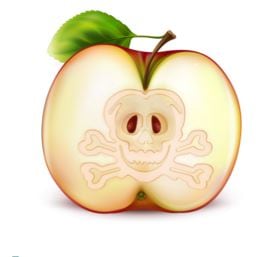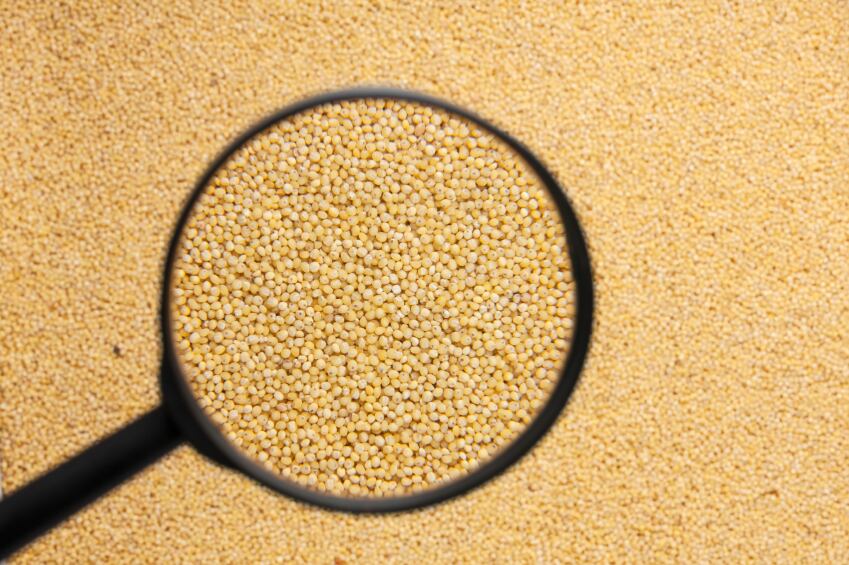To call glyphosate controversial is putting it mildly. In the past few weeks the most widely used weedkiller in the world has attracted court cases, been the focus of open letters signed by hundreds of scientists and this week led to an EU-wide petition supported by more than 137k people.
Put simply, it all boils down to whether the substance really does pose a risk to human health. The complication is that a clear line is almost impossible to draw (or perhaps spray).
Depending on which experts you listen to, glyphosate is “probably”, “possibly” or “unlikely” to be carcinogenic to humans. This has created a media storm, raising fears over the presence of the chemical in foods and put the spotlight on the European Food Safety Authority’s assessment process.
Roundup recap
Let’s start in March when the International Agency for Research on Cancer (IARC) concluded that glyphosate, best known as Monsanto's Roundup, is “probably carcinogenic to humans”.
Evidence in humans was limited, IARC noted, but experimental evidence in animals to show the link between the chemical and tumours was sufficient to put it in to group 2A.

Campaigners seized on the decision to push the EU to legislate to ban glyphosate. The agri-food industry, unsurprisingly, was none too keen on the findings.
Some scientists also questioned whether IARC had gone too far. One told the Science Media Centre the evidence appears a bit thin, with another suggesting that it should have been class 2B (possibly carcinogenic to humans) at the most.
But then in November the European Food Safety Agency (EFSA) went a step further: the carcinogenic risk posed by glyphosate to humans wasn’t probable or possible, it said, but “unlikely”.
6,000 pages
The Authority’s “exhaustive” assessment had taken three years, taking account of a “wealth of new studies and data”. The process involved scientific experts from EFSA, the European Chemicals Agency and national authorities in member states. Indeed, only one country – Sweden – didn’t agree with the conclusions.
The glyphosate-related documents on EFSA’s site now run to more than 6,000 pages but it was one word – “unlikely” – that fanned the flames around an already hot potato: “Regarding carcinogenicity, it is unlikely that this substance is carcinogenic,” the head of the group’s pesticides unit Jose Tarazona said at the time.
Accusations came thick and fast. “It is blindly obvious that the WHO approach is right from the perspective of public safety, and that the EFSA approach simply serves the interests of pesticides companies,” said Peter Melchett, policy director at UK organic group the Soil Association.
The Pesticide Action Network (Pan Europe) said the opinion violates Europe’s precautionary principle, which is also part of the bloc’s pesticides regulation.
EFSA courts controversy
EFSA now found itself at the centre of another unwanted controversy. Indeed, in the 18 months since he became executive director, Dr Bernhard Uhl has been on a PR-offensive to portray a new “open EFSA” image.
There is a limit to what Uhl feels should be disclosed though. “I think that science needs parts of the process in a closed room and then many steps of the process in an open atmosphere,” he told sister site Nutraingredients.com recently.
His comments followed the loss of a four-year court battle with NGO Pan Europe; the European Court of Justice forced EFSA to hand over details of which working group members made what changes to a draft document on pesticides.

Some of the concerns have not gone away. Speaking to FoodNavigator this week, Pan Europe’s environmental toxicologist Angeliki Lysimachou raised a number of concerns with the glyphosate assessments – but she isn’t the only one.
EFSA’s conclusion was criticised by 96 independent scientists from 25 countries who highlighted “weaknesses” in the evaluation. This included dismissing evidence from epidemiology studies and using unpublished studies. There has also been the suggestion that EFSA has relied far too heavily on the information supplied by the Glyphosate Task Force, whose members include Monsanto and Syngenta.
In a statement sent to FoodNavigator EFSA outlined how rigorous the process had been and the lengths to which it had gone to be transparent.
“In the interests of maximum transparency, these documents [running to over 6,000 pages] also include the public consultation report of contributions from the public and individual Member States and how these comments were addressed”.
EFSA also said it has organised a meeting with IARC in January “to discuss the data and methodologies used to prepare their individual assessments and to exchange views on scientific divergences”.
What next?
Whether such a meeting would see either IARC or EFSA change its mind is unclear.
Pan Europe’s Lysimachou is not convinced the standing committee for food chain and animal health will do anything but go with EFSA’s decision and recommend that glyphosate is approved for another 10 years. This will then leave the final decision with member states – all but one of which currently see no issue with re-approval.
The only hope for anything else was that glyphosate becomes a political issue and some countries vote against the committee’s likely findings because too much uncertainty remains. This could see a partial ban on the substance.
The agri-business industry appears much more confident that things will go in their favour. “We are hopeful [re-authorisation] would then be supported by the member states,” said Graeme Taylor, director of public affairs at the European Crop Protection Association.
Last chance saloon
The other option, of course, is that the food industry steps in. This week, a petition calling for a ban on glyphosate attracted 137,391 signatures (and counting). Is that enough to turn the heads of the major food companies?
It’s happened before, with supermarkets and manufacturers introducing their own bans on genetically modified crops, for instance. In the US there is also a move towards antibiotic-free meat.
“Sometimes food companies find themselves saying they don’t want [something in their supply chains]. That’s a fantastic step,” said Lysimachou. With the Commission needing to decide by May 2016, industry action might be campaigners’ last hope to restrict use of a chemical they – as well as IARC and a number of scientists – say poses a risk to human health.
